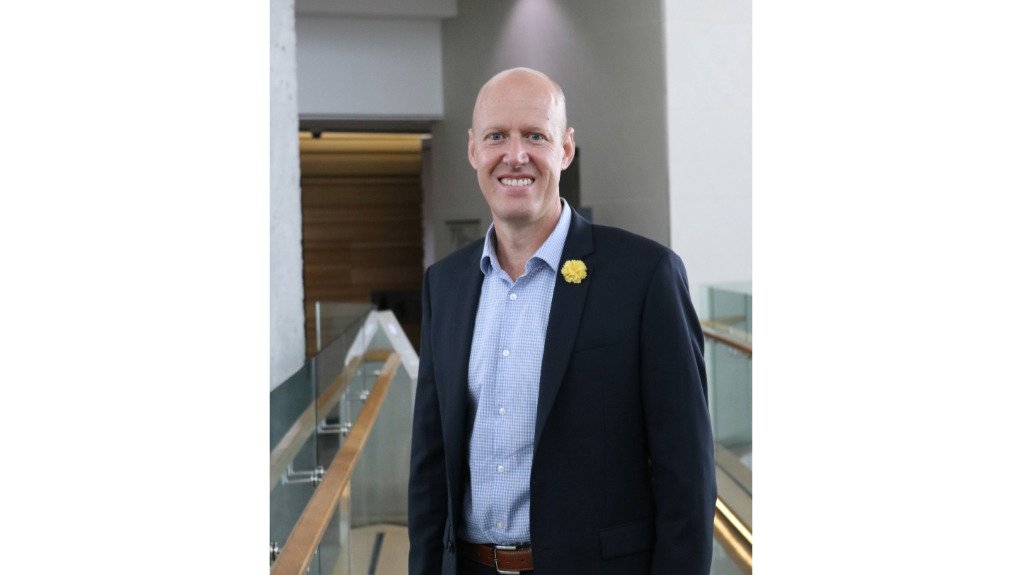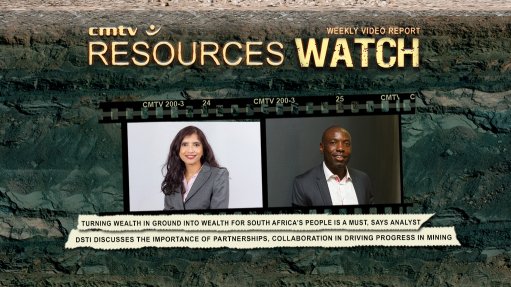Region poised to benefit from energy transition


WICKUS BOTHA Countries with major deposits of copper, cobalt, manganese, vanadium and chrome are well positioned to capitalise on future investment in the supply of these critical minerals
Southern and Central African countries have a significant opportunity to benefit from the anticipated high demand for energy-transition minerals, such as those used for renewable-energy systems, electric drivetrains, battery storage and for Fourth Industrial Revolution technologies.
Consequently, countries with major deposits of copper, cobalt, manganese, vanadium and chrome are well positioned to capitalise on future investment in the supply of these minerals, owing to their anticipated use in expanding the green economy, says advisory and professional services firm EY Africa energy and natural resources leader Wickus Botha.
While the Democratic Republic of Congo and Zambia have started to exploit their major copper and cobalt deposits, a substantial amount of these minerals is yet to be developed, which, in turn, can significantly benefit these countries.
Botha also points out that, going forward, there will be increased investment by junior mining companies as they exploit other significant opportunities in Africa.
He emphasises that the junior mining sector and explorers are more agile and nimble, enabling them to drive early-stage exploration more effectively as they build the necessary knowledge and understanding of where certain minerals can be pursued.
Further, increased demand and opportunity are anticipated for rare earth elements, primarily supplied currently by China and Russia, which are essential to produce components for computer processors, semiconductors and microchips.
Botha says that, as these components are produced in Asia, particularly China, many countries want to diversify and disaggregate their production and supply chains.
This will result in increased demand for minerals other than Chinese sources, consequently creating an opportunity for African countries to develop and exploit their resources to meet this demand.
Legislative Support
Botha says several African mining legislative jurisdictions are conducive towards attractive investment, as a result of stable and long-enduring legislation. This creates certainty for investors, whose projects typically span many years.
He highlights Ghana and Botswana as having stable legislative environments, crediting the countries’ long history of mining as a key factor in driving stable and supportive regulations.
However, legislation is consequently biased towards the respective country’s main mining products.
Botha adds that, while changes to mining legislation in many West African countries, such as Ghana and Nigeria, are not expected, government interventions and monetary policy developments directed towards managing inflation and the local cost of debt, as well as developing the economy, are expected.
In Nigeria, the previous and current governments have stated a strong ambition for a bigger mining industry. While the economy has historically been primarily driven by oil and gas, this country's government aims to diversify the economy beyond oil and gas.
“They've been working very hard for several years to create platforms and frameworks for people to invest . . . I suspect that you will find investor-friendly policies in Nigeria to attract investment into mining . . . ,” he explains.
Botha highlights that South Africa also has a relatively stable legislative environment: “Some may agree or disagree on the legal aspects, but the system has been relatively stable and reasonably transparent. People understand the objectives and what is required of them, allowing them to plan and operate accordingly.”
Developments in other legislative areas, such as the change in the licence threshold requirements for embedded electricity generation projects – which was increased from 1 MW to 100 MW, and ultimately lifted completely – demonstrate an opportunity to evaluate alternative, and potentially better, ways of structuring mining operations for investors.
In terms of localisation, Botha also notes the global trend of focusing on ensuring a strong domestic economy, and that domestic supply, demand, manufacturing and processing are supported. Essentially, countries want to ensure they do not only rely on the import of inputs and export of goods.
“The policy developments that we envisage are likely along those lines of greater encouragement or mandating for localisation,” he adds.
Infrastructure Development
One of the most difficult hurdles for major mining projects in Africa is undeveloped or underdeveloped infrastructure, but a key factor positively affecting mining jurisdictions is various role-players collaborating to invest in and develop bulk infrastructure, such as transport and energy.
“We see that, slowly but surely, getting better and better over time, which makes the release of these projects easier on the African continent,” notes Botha.
In particular, infrastructure that supports logistics, such as rail access and road transport, are crucial for transporting consumables, equipment and other goods to mining sites, as well as mined product from the mine to plant or port.
Botha also credits investments made in telecommunications, which is a significant enabler for business, as mining operations in remote areas can access 3G, 4G and 5G networks, in addition to enhancing communication and connectivity.
Such connectivity enables mining companies to enhance data processing, make better data-based decisions and embrace technological advancements as they occur.
“We’ve seen that access to better communication across the African continent has really improved over the past couple of years,” concludes Botha.
Article Enquiry
Email Article
Save Article
Feedback
To advertise email advertising@creamermedia.co.za or click here
Announcements
What's On
Subscribe to improve your user experience...
Option 1 (equivalent of R125 a month):
Receive a weekly copy of Creamer Media's Engineering News & Mining Weekly magazine
(print copy for those in South Africa and e-magazine for those outside of South Africa)
Receive daily email newsletters
Access to full search results
Access archive of magazine back copies
Access to Projects in Progress
Access to ONE Research Report of your choice in PDF format
Option 2 (equivalent of R375 a month):
All benefits from Option 1
PLUS
Access to Creamer Media's Research Channel Africa for ALL Research Reports, in PDF format, on various industrial and mining sectors
including Electricity; Water; Energy Transition; Hydrogen; Roads, Rail and Ports; Coal; Gold; Platinum; Battery Metals; etc.
Already a subscriber?
Forgotten your password?
Receive weekly copy of Creamer Media's Engineering News & Mining Weekly magazine (print copy for those in South Africa and e-magazine for those outside of South Africa)
➕
Recieve daily email newsletters
➕
Access to full search results
➕
Access archive of magazine back copies
➕
Access to Projects in Progress
➕
Access to ONE Research Report of your choice in PDF format
RESEARCH CHANNEL AFRICA
R4500 (equivalent of R375 a month)
SUBSCRIBEAll benefits from Option 1
➕
Access to Creamer Media's Research Channel Africa for ALL Research Reports on various industrial and mining sectors, in PDF format, including on:
Electricity
➕
Water
➕
Energy Transition
➕
Hydrogen
➕
Roads, Rail and Ports
➕
Coal
➕
Gold
➕
Platinum
➕
Battery Metals
➕
etc.
Receive all benefits from Option 1 or Option 2 delivered to numerous people at your company
➕
Multiple User names and Passwords for simultaneous log-ins
➕
Intranet integration access to all in your organisation

















